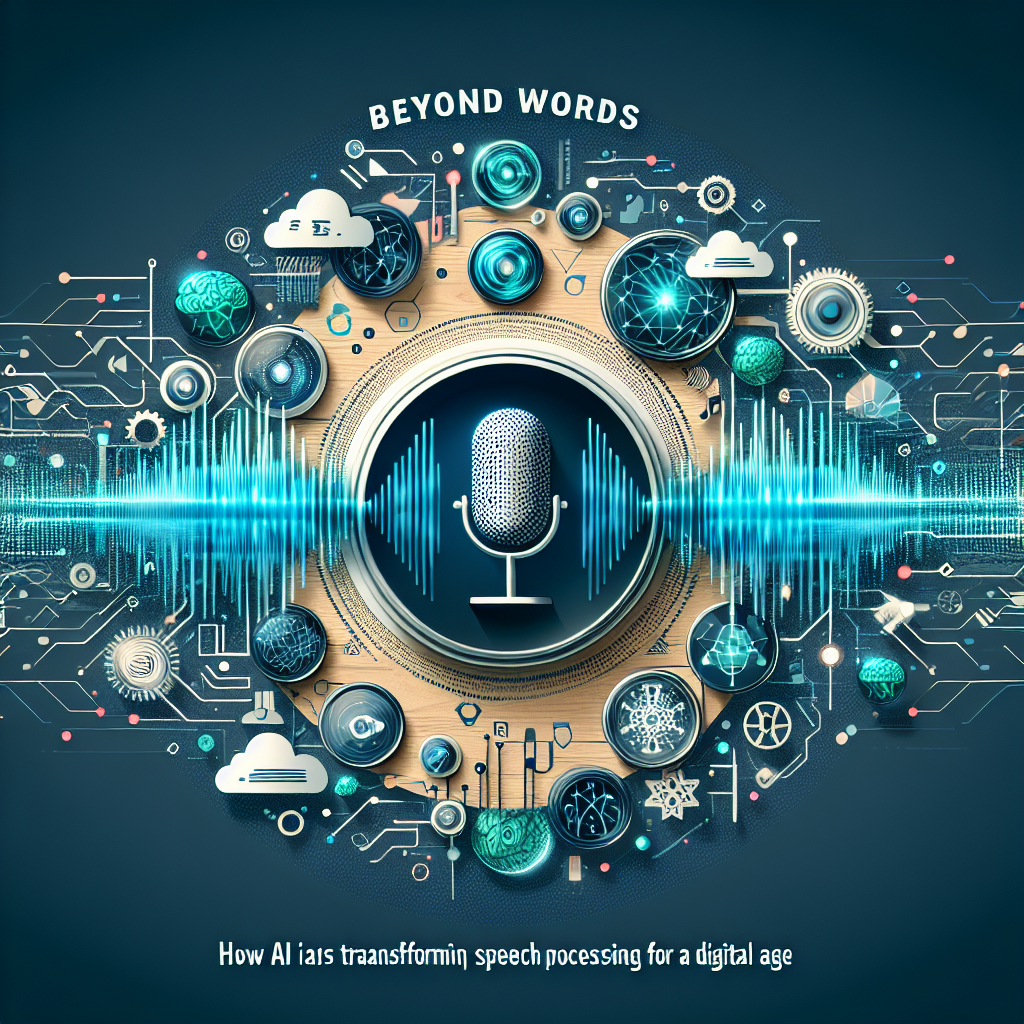In today’s rapidly evolving digital age, the way we interact with technology is constantly changing. One of the most significant advancements in recent years has been the development of artificial intelligence (AI) technology that can interpret and process human speech. This breakthrough has revolutionized the way we communicate with our devices, opening up new possibilities for businesses, individuals, and society as a whole.
The Rise of AI in Speech Processing
AI-powered speech processing has come a long way since its inception. Initially, speech recognition technology was limited in its capabilities and accuracy. However, with the advancements in machine learning and deep learning algorithms, AI systems can now interpret and understand human speech with remarkable accuracy and speed. This has enabled a wide range of applications, from virtual assistants like Siri and Alexa to transcription services and language translation tools.
The key to the success of AI in speech processing lies in the ability of machines to learn and adapt to different accents, languages, and speech patterns. By analyzing vast amounts of data, AI systems can improve their accuracy over time and provide more personalized and efficient services to users. This has led to the widespread adoption of speech recognition technology in various industries, such as healthcare, finance, and customer service.
The Impact of AI on Speech Processing
The integration of AI technology in speech processing has had a profound impact on how we interact with our devices and the world around us. For businesses, AI-powered speech recognition has enabled faster and more accurate customer service, improved data analytics, and enhanced communication with customers. In healthcare, AI systems can transcribe medical records and assist doctors in diagnosing and treating patients more effectively.
In addition, AI technology has made it easier for people with disabilities to communicate and access information. By providing a more intuitive and natural way of interacting with devices, AI-powered speech processing has empowered individuals with visual impairments, motor disabilities, and other challenges to navigate and engage with the digital world more effectively.
Challenges and Opportunities
Despite the many benefits of AI in speech processing, there are still challenges to overcome. One of the biggest hurdles is ensuring the privacy and security of user data. As AI systems become more sophisticated and capable of understanding and processing sensitive information, there is a growing concern about how this data is being used and protected.
Another challenge is the bias and inaccuracies that can arise in AI-powered speech recognition systems. Due to the limitations of training data and the complexity of language, AI systems may exhibit biases or errors in interpreting speech, leading to miscommunications or misunderstandings. It is important for developers and researchers to address these issues and strive for more inclusive and accurate speech processing solutions.
The Future of AI in Speech Processing
As AI technology continues to advance, the future of speech processing looks promising. With the development of more sophisticated algorithms and improved data analytics capabilities, AI systems will be able to interpret and process speech more accurately and efficiently than ever before. This will open up new possibilities for businesses, individuals, and society as a whole, allowing for greater accessibility, communication, and innovation in the digital age.
Conclusion
In conclusion, AI-powered speech processing is transforming the way we interact with technology and each other. By enabling machines to understand and interpret human speech, AI technology has revolutionized the possibilities for communication, accessibility, and innovation in the digital age. While there are still challenges to overcome, the future of AI in speech processing looks bright, promising a more connected and inclusive society for all.
FAQs
1. What is AI speech processing?
AI speech processing refers to the use of artificial intelligence technology to interpret and understand human speech. This technology enables machines to transcribe, translate, and analyze spoken language, opening up new possibilities for communication and interaction in the digital age.
2. How accurate are AI speech recognition systems?
AI speech recognition systems have improved significantly in recent years, with some achieving accuracy rates of over 95%. However, the accuracy of AI systems can vary depending on the quality of data, the complexity of language, and other factors. Developers are constantly working to improve the accuracy and performance of AI-powered speech recognition technology.
3. What are some applications of AI speech processing?
AI speech processing technology is used in a wide range of applications, including virtual assistants like Siri and Alexa, transcription services, language translation tools, and customer service applications. In healthcare, AI speech processing is used to transcribe medical records and assist doctors in diagnosing and treating patients more effectively.
4. What are some challenges of AI speech processing?
Some challenges of AI speech processing include privacy and security concerns, biases and inaccuracies in speech recognition systems, and the complexity of interpreting and processing different accents and languages. Developers and researchers are working to address these challenges and improve the accuracy and inclusivity of AI-powered speech processing technology.
